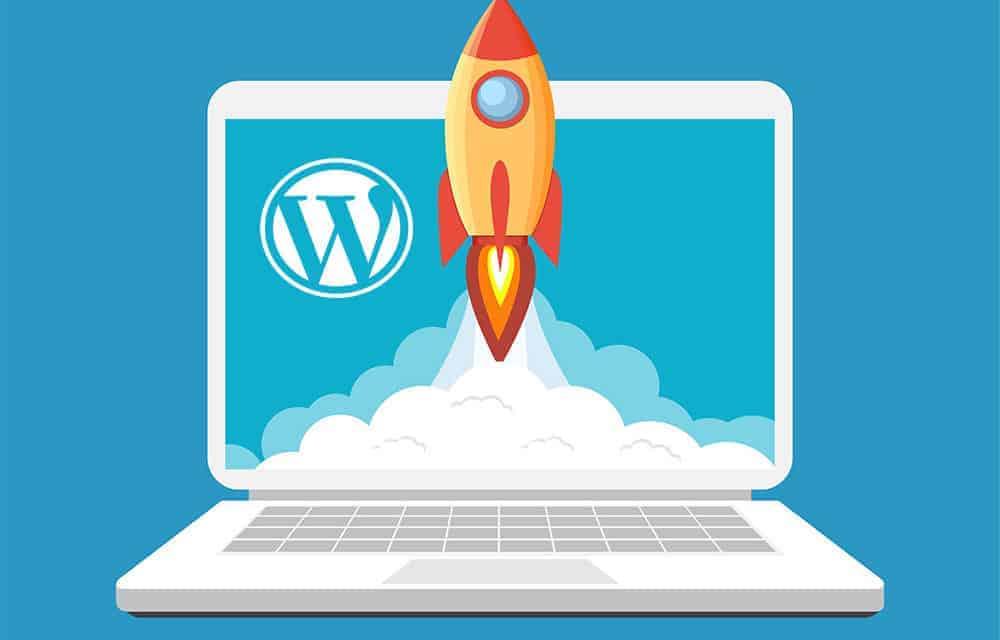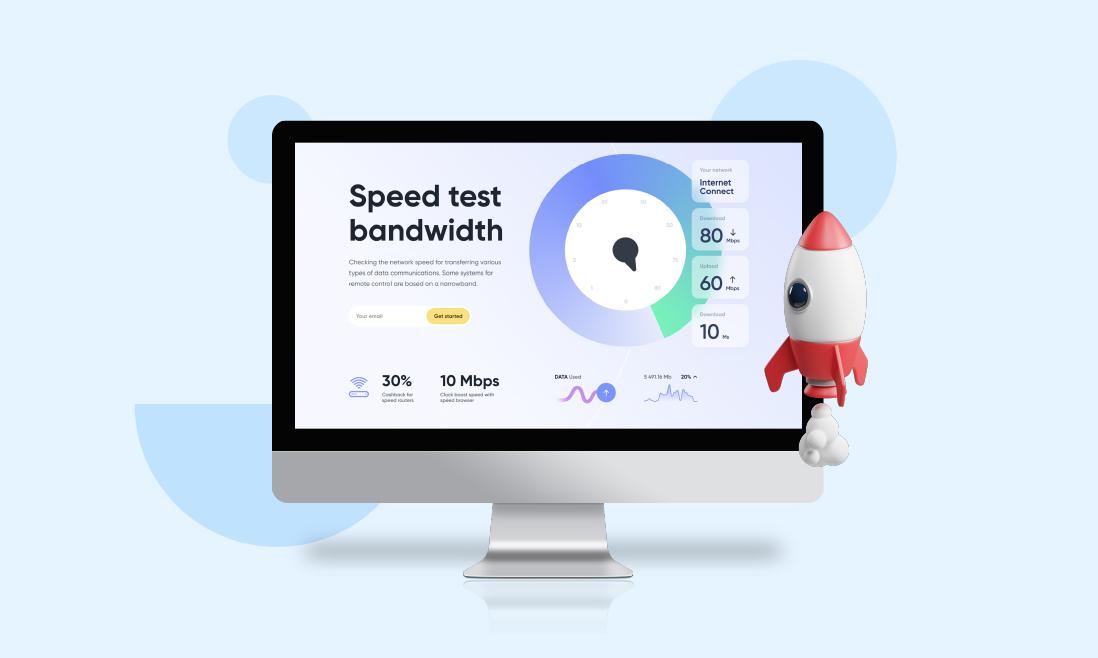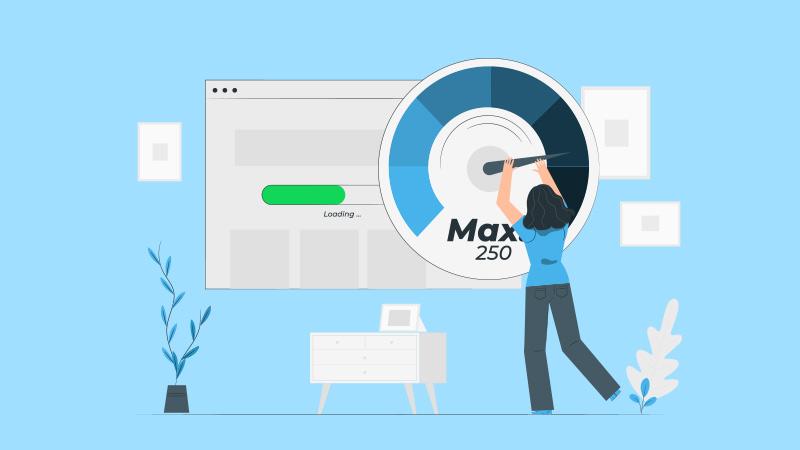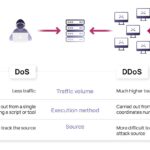In the fast-paced world of e-commerce, a website’s speed can make or break its success. From the moment a potential customer clicks on a link, to the final checkout process, every second counts. In this article, we will delve into what website speed is, why it plays a crucial role in the success of e-commerce businesses, and how you can ensure your site is optimized for maximum performance. Join us as we explore the need for speed in the digital marketplace.
Table of Contents
- Understanding the Impact of Website Speed on User Experience
- Key Factors Affecting Website Speed and Performance
- Optimizing Website Speed for Increased Conversions
- Best Practices for Improving Website Speed and SEO Rankings
- Q&A
- Key Takeaways

Understanding the Impact of Website Speed on User Experience
Having a fast website is crucial for e-commerce success. Website speed refers to how quickly a webpage loads and displays its content. This can greatly impact user experience, conversion rates, and overall satisfaction with a website. Slow loading times can lead to frustrated users who are more likely to abandon the site and seek out a competitor. On the other hand, fast-loading pages can enhance user engagement and increase sales.
There are several reasons why website speed matters for e-commerce sites:
- Improved Conversion Rates: Faster loading times can lead to higher conversion rates as users are more likely to complete a purchase if the process is smooth and efficient.
- Enhanced User Experience: A fast website provides a better user experience, which can lead to increased customer satisfaction and loyalty.
- SEO Benefits: Search engines like Google prioritize fast-loading websites, so improving site speed can also help boost search engine rankings.

Key Factors Affecting Website Speed and Performance
Website speed and performance are crucial factors that can greatly impact the success of an e-commerce business. Slow loading times and poor performance can lead to higher bounce rates, decreased conversions, and ultimately, lower sales. Understanding the key factors affecting website speed is essential for ensuring a smooth and seamless user experience for your customers.
One key factor that can affect website speed is the size and complexity of your website’s design. Large images, excessive plugins, and unnecessary scripts can all contribute to slower loading times. Optimizing your website’s design and code can help improve performance and speed. Additionally, choosing a reliable hosting provider, implementing caching mechanisms, and optimizing server response times are all important steps in enhancing website speed and performance. By addressing these key factors, you can create a faster, more efficient website that enhances the overall user experience and drives e-commerce success.

Optimizing Website Speed for Increased Conversions
Having a fast website is crucial for e-commerce success. Website speed refers to how quickly a web page loads and is crucial for keeping customers engaged and preventing them from abandoning your site. In today’s fast-paced digital world, online shoppers expect instant results, making website speed a critical factor for conversion rates and overall user experience.
When it comes to e-commerce, website speed can impact various aspects of your online business, including:
- Conversion rates
- SEO rankings
- User experience
- Brand reputation

Best Practices for Improving Website Speed and SEO Rankings
When it comes to running a successful e-commerce website, one of the key factors to consider is the speed at which your website loads. Website speed refers to the time it takes for your website to fully load its content on a user’s browser. In today’s fast-paced digital world, users expect websites to load quickly and efficiently. A slow-loading website can lead to high bounce rates, poor user experience, and ultimately, lower conversion rates.
Improving website speed not only enhances user experience but also plays a crucial role in improving SEO rankings. Search engines like Google prioritize websites that load quickly and provide a seamless user experience. To boost your website speed and SEO rankings, consider implementing the following best practices:
- Optimize Images: Compress and resize images to reduce their file size without compromising quality.
- Enable Browser Caching: Set expiration dates for cacheable resources to reduce loading times for returning visitors.
- Minify CSS and JavaScript: Remove unnecessary characters and spaces from code to reduce file sizes and improve loading speed.
- Use Content Delivery Networks (CDNs): Distribute your website’s content across multiple servers to reduce page load times for users around the world.
Q&A
Q: What is website speed and why does it matter for e-commerce success?
A: Website speed refers to how quickly a webpage loads when a user tries to access it. In the world of e-commerce, this can greatly impact the user experience, as slow loading times can lead to frustration and decreased sales.
Q: How does website speed affect e-commerce success?
A: Website speed plays a crucial role in e-commerce success as it directly impacts user experience. Studies have shown that a one-second delay in page load time can result in a 7% decrease in conversions, highlighting the importance of a fast-loading website for maximizing sales.
Q: What are some ways to improve website speed for e-commerce sites?
A: There are several strategies that e-commerce businesses can employ to improve website speed, such as optimizing images, enabling browser caching, minimizing HTTP requests, and utilizing a content delivery network. These tactics can help decrease load times and enhance the overall user experience.
Q: How can website speed impact SEO performance?
A: Website speed is a crucial factor in SEO performance, as search engines like Google prioritize fast-loading websites in their rankings. By improving website speed, e-commerce businesses can not only enhance user experience but also boost their visibility in search results, leading to increased organic traffic and potential sales.
Q: What are some real-world examples of e-commerce businesses that have benefited from improving their website speed?
A: Many e-commerce giants, such as Amazon and Walmart, have invested resources in optimizing their website speed to enhance user experience and drive sales. By prioritizing fast-loading pages, these companies have seen significant improvements in conversion rates and customer satisfaction, proving that website speed truly does matter for e-commerce success.
Key Takeaways
website speed plays a crucial role in the success of e-commerce businesses. A slow-loading website can turn potential customers away and ultimately lead to loss of sales. By prioritizing website speed and optimizing performance, e-commerce businesses can enhance user experience, improve search engine rankings, and ultimately drive more conversions. So, don’t let a slow website hold your online business back. Invest in website speed optimization and watch your e-commerce success soar to new heights. Thank you for reading!











Neque porro quisquam est, qui dolorem ipsum quia dolor sit amet, consectetur, adipisci velit, sed quia non numquam eius modi tempora incidunt ut labore.
Quis autem vel eum iure reprehenderit qui in ea voluptate velit esse quam nihil.
Et harum quidem rerum facilis est et expedita distinctio. Nam libero tempore, cum soluta nobis est eligendi optio cumque nihil impedit quo minus id quod maxime placeat facere.